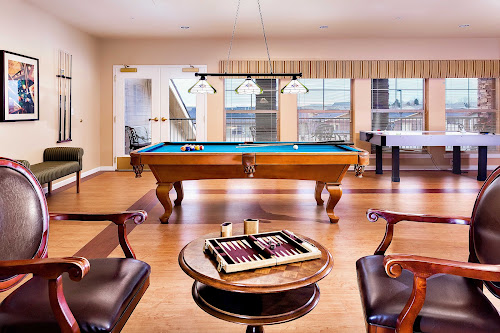As we age, paying attention to our foot health becomes increasingly important. Our feet carry us through life, and proper care is essential. Routine podiatry treatment can be transformative for seniors, providing numerous benefits that enhance quality of life. It plays a vital role in maintaining overall health and mobility, which is especially important for those in assisted Alzheimers care Fort Collins.
Preventative Care for Happy Feet
One of the primary advantages of routine podiatry care is the ability to prevent potential issues before they escalate. As we age, our feet become more susceptible to various conditions such as bunions, corns, calluses, and arthritis. By scheduling regular check-ups with a podiatrist, seniors can address minor concerns before they develop into more significant problems, ultimately avoiding pain and discomfort.Maintaining Mobility and Independence
Healthy feet are the foundation of mobility and independence. When seniors prioritize proper foot care, they invest in their ability to continue engaging in daily activities and maintaining an active lifestyle. Whether taking a leisurely stroll or participating in social events, well-maintained feet contribute to a higher quality of life. By seeking routine podiatry care, seniors can address any mobility issues early on, ensuring they can stay on their feet and enjoy an independent lifestyle for years to come.Customized Footwear Guidance
Wearing the proper footwear is crucial for foot health, especially for seniors. Podiatrists can offer personalized recommendations for appropriate footwear based on individual foot structure and specific needs. Whether it's orthopedic shoes, inserts, or other supportive devices, seniors can benefit from expert guidance to ensure they are stepping with comfort and stability.Managing Chronic Conditions
Seniors living with chronic conditions such as diabetes or arthritis require extra attention to foot care. Routine podiatry care allows for ongoing monitoring and management of these conditions, helping to prevent complications and maintain overall health. Podiatrists can provide valuable guidance on proper foot care techniques and identify any warning signs that require immediate attention, ultimately playing a crucial role in overall wellness.5 Tips for Maintaining Happy Feet Every Day
In addition to routine podiatry care, there are simple steps that seniors can take to promote good foot health on a daily basis:- Regularly inspect the feet for unusual signs like redness, swelling, or sores.
- Wash and thoroughly dry the feet daily, paying attention to the spaces between the toes.
- Keep the toenails trimmed, avoiding ingrown nails and potential infections.
- Stay active to promote circulation and maintain healthy muscle tone in the feet and ankles.
- Choose comfortable and supportive footwear that accommodates the natural shape of the feet.
.jpg)




.jpg)

.jpg)


.jpg)
